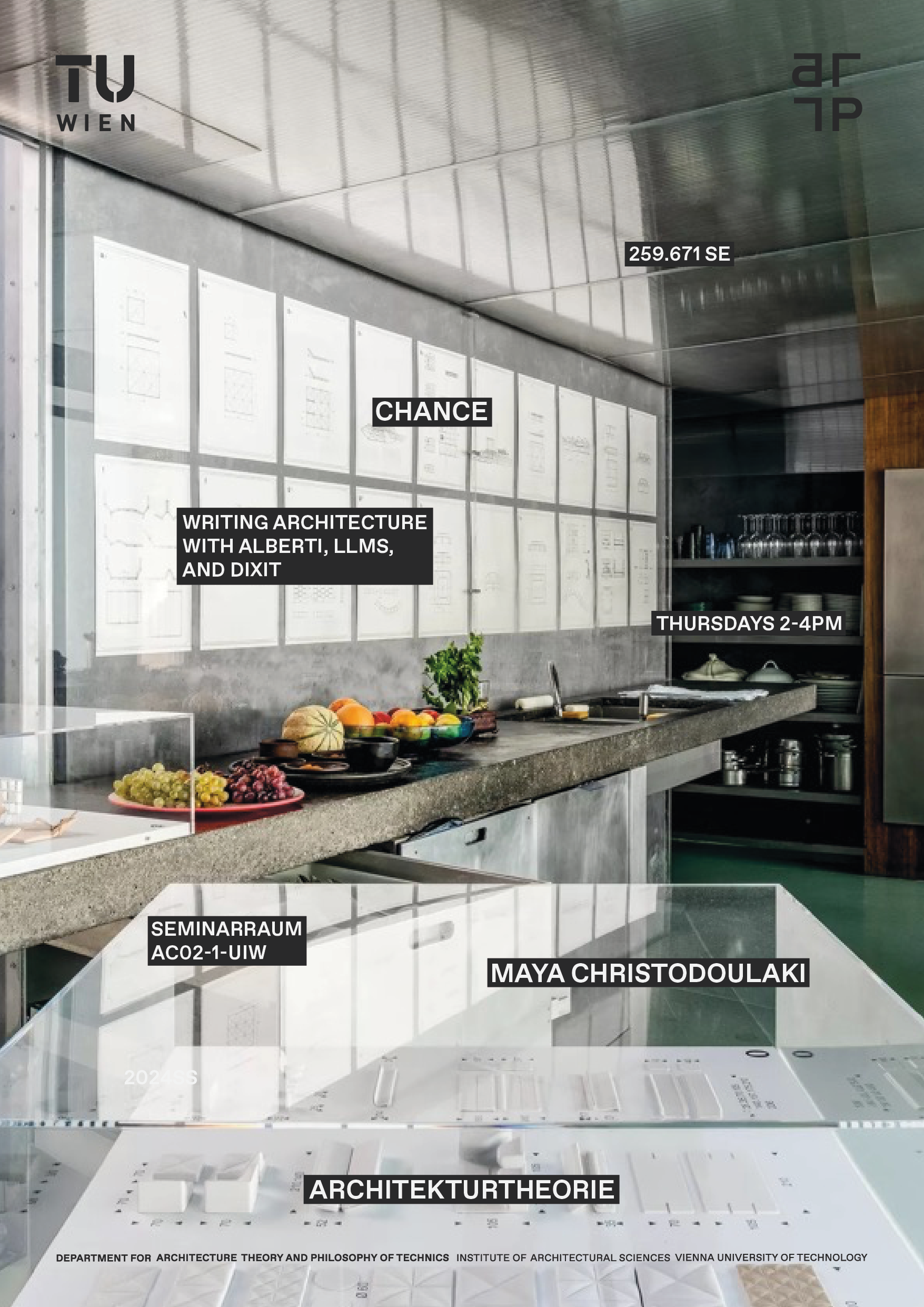
CHANCE: Writing Architecture with Alberti, LLMs, and DIXIT
What does an architect do within the Machine Learning Cosmos?
There is chatting and rumbling, murmur, and noise - Machine Learning is about dealing with signals that are muddy and unclear in which we look for harmony and sense.
In this seminar, we will explore ways to work conceptually as a space-maker with the idea of CHANCE. With Large Language Models, an architect’s operation has shifted from designing to architecting, as an act of navigation with and among the myriad nodes and connections that make up the art of space-making.
We set the center of this architecting operation in the kitchen, where CHANCE manifests through a creator/inventor/thinker that improvises with Midjourney, ChatGBT and AskAlice all possible text-to-text, text-to-image and image-to-text productions.
In the kitchen we find our tools: we learn to improvise using Machine Learning Models (convolution, GAN, stable diffusion) and use them as storytelling devices.
On the kitchen table, we play a game of associations from speech-to-image (DIXIT) to experiment with the backbone of every narration, biographies.
Here, we open a communication channel with non-other than (our own) Leon Battista Alberti. He is perhaps best known for his seminal work Ten Books on Architecture (1452), or his treatises On Painting (1435), and On Sculpture (1464).
Yet in this seminar, we focus on Alberti’s antiquarianism, art of discovery and autobiographical motif found in his letters, short stories and mythical novels.
With these tools at hand, this seminar examines an architectural hypothesis, suggesting that the probabilistic, self-referential nature of Machine Learning aligns with concepts inherent in architecture and the art of space-making.
Weekly readings, presentations, discussions, writing exercises, text-to-image translations, final essay.
In this seminar students will learn how to bring together Alberti’s treatises, machine learning models and the game of image associations called DIXIT to create architectonic hypotheses and write texts on chance.